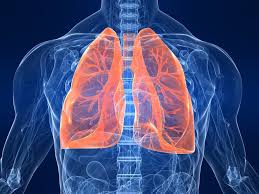
India's Pledge to Eliminate Tuberculosis by 2025: A Comprehensive Approach to Public Health
As a signatory to the United Nations Sustainable Development Goals (UN-SDGs), India has committed to eradicating tuberculosis (TB) by 2025, five years ahead of the global SDG target of 2030. This ambitious goal is guided by the Sustainable Development Goal (SDG) target 3.3, which aims to end the epidemics of major infectious diseases like AIDS, tuberculosis, and malaria. To achieve this, India has set specific TB reduction goals, including an 80% decrease in TB incidence, a 90% reduction in TB mortality, and eliminating catastrophic expenses for TB-affected households, all compared to 2015 levels.
Reaffirming India’s Commitment to End TB:
India’s mission to end TB by 2025 was first outlined by Prime Minister Narendra Modi at the 2018 “End TB Summit” in New Delhi and reinforced at the “One World TB Summit” in Varanasi on World TB Day 2023. At these forums, the Prime Minister stressed the need for a revitalized response to the TB epidemic, reflecting India’s high-level commitment. Furthering this mission, India signed the Gandhinagar Declaration, a joint declaration with the WHO South-East Asia Regional Office (SEARO), committing to accelerate TB elimination across the region by 2030.
Strengthening the National Tuberculosis Elimination Program (NTEP):
The National Tuberculosis Elimination Program (NTEP) is India’s key operational arm for achieving the ambitious TB elimination targets. The NTEP, aligned with the National Strategic Plan (NSP) 2017–2025, has demonstrated significant progress in closing the gap between set targets and actual achievements. As one of the first countries to create a mathematical model for TB burden estimation, India is taking evidence-based strides to combat TB more effectively.
Intensified Efforts in Diagnostics and Care:
India has significantly ramped up diagnostic efforts through the NTEP, conducting approximately 1.89 crore sputum smear tests and 68.3 lakh nucleic acid amplification tests as of 2023. These efforts underline a commitment to providing accessible diagnostic services at all healthcare levels. The program has also expanded its approach to managing drug-resistant TB (DR-TB), introducing shorter oral regimens and comprehensive care packages to improve outcomes for DR-TB patients. The government’s emphasis on minimizing treatment delays and ensuring high-quality care underscores a patient-centered approach that tackles TB’s diverse challenges.
Integrating Holistic Health Interventions:
The NTEP takes a holistic approach by addressing coexisting health factors that can exacerbate TB, such as malnutrition, diabetes, HIV, and substance abuse. By focusing on early diagnosis and preventive measures, the NTEP works to shield vulnerable populations from developing active TB disease. The program's commitment to expanding TB preventive treatment (TPT) further reinforces India’s preventive stance, demonstrating a resolve to contain TB before it spreads among at-risk communities.
India’s accelerated efforts to eradicate TB highlight a comprehensive approach to public health, blending political commitment with innovative healthcare strategies. Through a strengthened National Tuberculosis Elimination Program, extensive diagnostic and treatment initiatives, and preventive measures tailored to high-risk groups, India is positioning itself to meet the “End TB” targets by 2025. This journey underscores India’s dedication to transforming its healthcare landscape and contributing significantly to global TB eradication efforts.